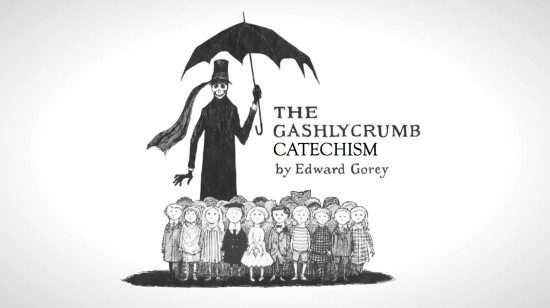“Does God Play Duck-Duck-Goose?” Richard Beck asks, critiquing the Calvinist doctrine of “double predestination.”
That’s the idea that “before you were even born, God had predestined you to either go to heaven or go to hell.” Beck notes that:
Double predestination has been roundly criticized, even within Reformed circles. But many people do subscribe to the doctrine. Double predestination is deemed to be a crude bastardization of Reformed theology, but crude bastardizations tend to be pretty popular.
He then goes on to explore the arguments that Calvinists use to distinguish themselves from double predestination, and how all of those arguments lead, logically, either to double-predestination by another name, or else to a form of Calvinism that turns out not to be very Calvinist at all.
Beck concludes:
As I see it, it really just boils down to this. You’re either an Arminian or you believe in double predestination, either the classic variety or the Duck-Duck-Goose variety. Because the election “in Christ” argument is either just more Duck-Duck-Goose or it’s the equivalent of Arminianism.
So either way, it boils down to a choice: Arminianism or double predestination.
Arminianism or Duck-Duck-Goose.
Yep. That’s the basic gist of the logic for why Christians like Beck and I can respect Calvin’s contributions without wanting to regard ourselves as Calvinists.

My quibble here, though, is that I don’t think that makes us “Arminians.” This is a pet-peeve of mine. “Arminian” is mainly an in-group word for outsiders. It’s just silly to expect me, as an outsider, to embrace that word or to make the in-group categories my primary source of identity.
The picture there to the right is of Jacobus Arminius. If you didn’t recognize him, that’s OK — most of the people whom Calvinists regard as “Arminians” don’t recognize him. Or think about him much, if ever. But that has no bearing on the in-group terminology. Even if you’ve never heard of Arminius and have no idea what he believed, you’re still an Arminian, as far as the group is concerned.
That’s an annoying assertion. I suppose it is technically true, if by that label they mean something binary like “not one of us Calvinists.” But one of the nice things about not being a Calvinist is that one does not have to define one’s self primarily in relation to Calvinism. That’s actually one of the nice things about not being anything — of not subscribing to any given “-ism.”
Decades ago, Robert Bellah & Co. introduced us to “Sheilaism” — the idiosyncratic, solipsistic religious faith of a woman named, yes, Sheila. Given that Sheila herself was the sole proponent and adherent of Sheilaism, that makes the rest of us non-Sheilaists.
But of course that’s not how most of us think of ourselves. Most people in the world aren’t even aware that there is such a thing as “Sheilaism,” and so they would never identify themselves as non-Sheilaists. So while such a classification is, indeed, technically true for all of us (except Sheila herself), you won’t find anyone who primarily identifies themselves that way.
Thus while it’s not technically wrong to say that you and I are non-Sheilaists, it’s misleading to categorize us as mainly that or as only that. Those binary categories of Sheilaist/non-Sheilaist aren’t things we much think about or care about. We can be classified according to those categories, but they aren’t anything that interests us or concerns us in any meaningful way.
Such classifications, it seems to me, can be accurate if all we say of them is, “Here is a label that might be applied to you,” but it becomes inaccurate when we say, “this label is what you are.”
The latter seems reductive, misleading and irksome.
So here, then, is a question for those of my fellow non-Sheilaists who also are non-theists: To what extent do you find the term “atheist” similarly irksome?
This sort of thing can be more than merely irksome, too. It doesn’t really matter if Calvinists insist on defining me as an “Arminian,” since their choice of terminology doesn’t affect the parameters of my actual identity and beliefs, nor does it restrict my freedom. But when the in-group enjoys real privilege, then its redefining of all outsiders as primarily outsiders can become a way of enforcing and maintaining that privilege. And that is more than simply annoying — that is unjust.
This points us toward a larger problem, and a longer discussion, having to do with the ways such labeling can be used to maintain an imbalance of power — allowing one group to dictate the terms for everyone else. Hold that thought, we’ll come back to it in a future discussion.












